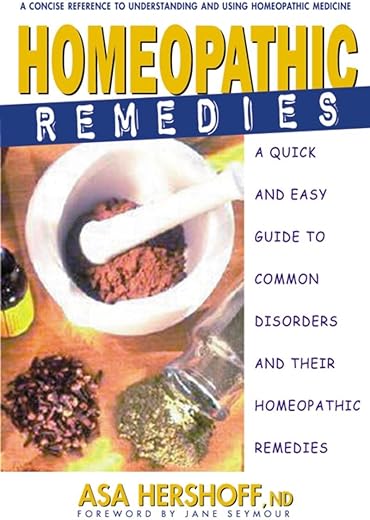Ever found yourself enthralled by the wisdom and richness of traditional medicine passed down through generations? Delve with us into the ancestral tapestry that weaves remedies, rituals, and knowledge – not just a tradition, but a cherished cultural heritage. Join the journey as we unveil the sacred thread that binds generations in healing and connection. Explore the profound significance of these practices, revealing the heartwarming tales of resilience and togetherness that transcend time.
Experience the Timeless Benefits of Traditional Medicine with our Bestsellers!
Historical Context of Traditional Medicine
#Traditional medicine has been practiced for centuries, drawing on knowledge and techniques passed down through generations. This blog section delves into the historical context of traditional medicine practices, giving insight into their evolution over time.
Ancient Discoveries
- Ancient civilizations like the Egyptians, Greeks, and Chinese had well-established traditional medicine systems.
- Examples: Ayurveda from India and Traditional Chinese Medicine (TCM).
- These ancient practices laid the foundation for many modern herbal remedies and treatments.
Middle Ages and Renaissance
- During the Middle Ages, monasteries became centers for medical knowledge and herbal remedies.
- Traditional European practices integrated biblical beliefs and natural ingredients.
- Example: Herbal teas for various ailments were commonly used.
Age of Exploration
- The Age of Exploration led to the spread of traditional medicines across continents.
- Indigenous healing practices gained recognition and were integrated into Western medicine.
- Example: Quinine derived from the cinchona tree by South American tribes, which became essential in treating malaria.
Industrial Revolution and Global Exchange
- The Industrial Revolution saw the mass production of traditional remedies.
- Global exchange of goods led to the introduction of diverse healing practices to new territories.
- Example: Tiger Balm, a popular topical ointment containing herbal ingredients that originated in China but became a household staple worldwide.
Modernization of Traditional Medicine
- Advancements in science have allowed for traditional remedies to be studied and standardized.
- Many traditional practices have been incorporated into modern healthcare systems.
- Example: Ginseng supplements backed by scientific research for their potential health benefits.
Benefits of Traditional Medicine Practices
- Holistic Healing: Traditional medicines often consider the interconnectedness of mind, body, and spirit.
- Natural Ingredients: Many remedies are plant-based with fewer side effects.
- Cultural Heritage: Traditional practices uphold cultural traditions and values.
- Personalized Approach: Treatments can be tailored to individual needs.
Closing
From ancient discoveries to modern applications, traditional medicine practices continue to play a vital role in healthcare around the world. Embracing the historical roots of these practices can deepen our understanding of health and wellness.
Oral Tradition and Knowledge Transfer
:In a world increasingly reliant on written records and digital technology, the oral tradition remains a powerful force of continuity and community connection. This is especially true when it comes to the transfer of knowledge surrounding traditional medicine. Passed down through generations via storytelling, dialogue, and hands-on experience, traditional medicines offer a holistic approach to healing that is rooted in history and culture.
Oral Tradition in Families and Communities:
Real-Life Example: Abuela’s Remedies
- Many families have cherished "grandma's remedies" for common ailments, passed down verbally from generation to generation, such as using aloe vera for burns or chamomile tea for relaxation.- The intimate bond between family members facilitates the transmission of knowledge, ensuring the preservation of time-honored practices.
Benefits of Oral Transmission:
- Rich contextual details accompany knowledge-sharing.- Adaptation and customization of remedies based on individual needs.- Encourages communal healing practices and fosters a sense of belonging.
Experiential Learning:
Real-Life Example: Traditional Healers
- Indigenous communities rely on experienced healers who share their wisdom through demonstration and apprenticeship.- Observation, practice, and feedback form the foundation of learning, ensuring practical mastery of healing techniques.
Key Points:
- Hands-on experience deepens understanding and expertise.- Learning through apprenticeship allows for direct mentorship and personalized guidance.- Practical application in real-life scenarios enhances efficacy and confidence.
The Role of Community Bonds:
Real-Life Example: Community Healing Circles
- Collective gatherings provide a supportive environment for sharing knowledge and experiences.- Interactions within the community foster solidarity and trust, strengthening the integrity of traditional healing practices.
Benefits of Community Connections:
- Cultural exchange promotes a diverse array of healing modalities.- Access to collective wisdom and shared resources.- Encouragement and guidance from peers enhance learning outcomes.
In conclusion, oral tradition in knowledge transfer is a vital aspect of preserving and perpetuating traditional medicine practices. Through stories, lived experiences, and community connections, the wisdom of our ancestors continues to guide us towards holistic well-being, both physically and spiritually.
Role of Rituals and Ceremonies
Rituals and ceremonies have long played a significant role in the transmission and preservation of traditional medicine practices across various cultures. These time-honored practices are not just about superstition or tradition; they hold a deep cultural significance and are integral to the effectiveness and understanding of historical healing methods.
Cultural Significance of Rituals
- Connection to Ancestral Knowledge: Rituals in traditional medicine connect practitioners with their ancestors’ wisdom, passing down techniques and knowledge through symbolic actions.
- Harmony with Nature: Ceremonies often emphasize the harmony between humans and nature, reflecting the belief that healing comes from being in tune with the environment.
- Community Bonding: Many rituals are communal, strengthening the social fabric within groups and promoting cohesion and support.
Transmitting Traditional Medicine Practices
Rituals and ceremonies serve as a vehicle through which traditional medicine practices are transmitted from one generation to another. Some ways in which this is achieved include:
- Oral Tradition: Many rituals involve storytelling and the oral transmission of knowledge through sacred narratives.
- Healing Arts Demonstrations: Ceremonial rituals often incorporate demonstrations of healing practices, allowing observers to witness and learn the techniques firsthand.
- Symbolism in Treatment: Symbolic gestures and actions during ceremonies can help to impart the underlying principles of traditional medicine.
- Mantras and Chants: The repetition of healing words or mantras during rituals can encode healing knowledge in a memorable way.
Cultural Brands Embracing Rituals
- Ayurveda Practitioners: Brands like Banyan Botanicals have integrated Ayurvedic rituals into their products, emphasizing the holistic approach of this traditional healing system.
- Greenheart Acupuncture: This brand incorporates Chinese healing ceremonies into acupuncture sessions, creating a holistic healing experience.
- Native American Herbalists: Groups like Red Earth Herbal Gathering showcase traditional rituals alongside herbal medicine practices, fostering a deeper understanding of the cultural roots of healing.
In conclusion, the role of rituals and ceremonies in traditional medicine practices goes beyond mere tradition; it is a crucial aspect of cultural preservation and knowledge transmission. By honoring these ceremonies, we not only preserve ancestral wisdom but also deepen our connection to the healing traditions of the past.
The Challenges of Preserving Traditional Medicine Knowledge
In the fast-paced modern world, preserving traditional medicine knowledge presents a unique set of challenges. As advancements in technology and changes in societal values continue to shape our lives, the age-old wisdom of traditional medicine risks being forgotten or overshadowed. Let’s delve into the key obstacles faced in the preservation efforts:
Losing Cultural Heritage
Traditional medicine practices are inherently tied to the cultural heritage of communities around the world. However, as globalization spreads, there is a real risk of losing this invaluable treasure trove of knowledge. For instance, the increasing popularity of fast food chains like McDonald’s and KFC can lead to a decrease in the consumption of traditional herbs and remedies, eroding the relevance of traditional medicine.
Lack of Documentation and Accessibility
Another hurdle in preserving traditional medicine knowledge is the lack of comprehensive documentation and central repositories of information. Unlike mainstream pharmaceutical products with extensive research and development, traditional remedies often lack proper validation and documentation. This poses a challenge in terms of accessibility and integration into modern healthcare systems.
Threat of Commercialization
In today’s commercialized world, the commercialization of traditional medicine poses a significant threat to its authenticity and integrity. Companies often capitalize on the popularity of traditional remedies by marketing them under trendy names or without full disclosure of their origins. This practice dilutes the essence of traditional medicine and misleads consumers looking for genuine products.
Preserving Heritage: Strategies for Safeguarding Traditional Medicine Knowledge
Despite these hurdles, all hope is not lost. Organizations, communities, and individuals can take proactive steps to safeguard traditional medicine knowledge and ensure its preservation for future generations. Let’s explore some strategies to achieve this noble goal:
- Educational Campaigns: Conduct awareness campaigns to educate the public about the importance of traditional medicine and its cultural significance.
- Integration with Modern Healthcare: Foster collaborations between traditional medicine practitioners and modern healthcare professionals to enhance the integration of traditional remedies into mainstream healthcare systems.
- Research and Development: Invest in research and development efforts to scientifically validate the efficacy of traditional remedies and ensure their acceptance by modern scientific communities.
- Regulatory Oversight: Advocate for regulations that protect traditional medicine knowledge from exploitation and promote ethical practices in the marketing and distribution of traditional remedies.
By embracing these strategies and collectively working towards the preservation of traditional medicine knowledge, we can ensure that this rich heritage continues to flourish and benefit future generations. Together, let us strive to safeguard the essence of traditional medicine and honor the wisdom of our ancestors.
Preserving Our Ancestral Wisdom
Conclusion:
It is evident from the insights shared in this blog post that traditional medicine practices are rich in history and wisdom, passed down through generations with care and intention. As custodians of this invaluable heritage, it becomes our responsibility to ensure its continued preservation and appreciation for the benefit of future generations. By nurturing and embracing these traditions, we not only honor our ancestors but also enrich our own well-being and connection to the past. Let’s commit to upholding and celebrating the legacy of traditional medicine for a healthier and more interconnected world.
Exploring Traditional Healing Practices
Are there specific rituals or ceremonies associated with the teaching and learning of traditional healing practices in various cultures?
Yes, there are specific rituals and ceremonies associated with the teaching and learning of traditional healing practices in various cultures. These rituals often serve to mark a person’s progression from apprentice to healer, to honor ancestral knowledge, and to establish a spiritual connection with the healing practices. For example, in some Native American tribes, healers may undergo purification rituals and vision quests to receive guidance from the spiritual world before being fully recognized as healers. Similarly, in Chinese medicine, the passing down of knowledge from master to student often involves ceremonies to invoke blessings and establish a sacred bond between the teacher and the apprentice. These rituals and ceremonies are considered vital components of the transmission of traditional healing practices and help maintain the integrity and authenticity of these ancient traditions.
In what ways do cultural values and beliefs impact the intergenerational transfer of traditional medicine knowledge?
Cultural values and beliefs play a significant role in influencing the intergenerational transfer of traditional medicine knowledge. They imbue practices with meaning, guiding the way knowledge is passed down from one generation to another. One way that cultural values affect this transfer is by shaping attitudes towards traditional medicine within a community. If a culture highly values traditional healing practices, the knowledge is more likely to be preserved and shared across generations.
Additionally, cultural beliefs about the interconnectedness of family members and the importance of preserving heritage contribute to the transmission of traditional medicine knowledge. Respect for elders and traditions often lead to younger generations learning from their elders and following in their footsteps, ensuring the continuity of traditional healing practices.
Moreover, cultural taboos or restrictions may impact who can pass on this knowledge and to whom. In some cultures, certain practices or knowledge might be restricted to specific family members or gender, limiting the transfer of traditional medicine knowledge.
In conclusion, cultural values and beliefs act as a driving force in the intergenerational transfer of traditional medicine knowledge, influencing the preservation, dissemination, and practice of traditional healing methods within communities.
What are some common methods used to pass down traditional medicine practices from one generation to the next?
Traditional medicine practices are often passed down from one generation to the next through effective methods such as apprenticeships, oral teachings, hands-on training, written documentation, and community gatherings. Community elders or healers usually take on apprentices who learn through direct observation, practical experience, and continuous guidance over an extended period. Oral teachings involve storytelling, reciting practices, and sharing knowledge verbally. Additionally, written documentation of herbal recipes, treatment methods, and healing rituals plays a crucial role in preserving traditional medicine practices for future use. Lastly, community gatherings, workshops, and ceremonies provide a platform for the exchange of knowledge and experiences among practitioners, ensuring the continuity of traditional medicine practices.
















![Ez Prepa [20 Pack] 32oz 3 Compartment Meal Prep Containers with Lids - Bento Box - Plastic - Stackable, Reusable, Microwaveable & Dishwasher Safe](https://adventistmarket.com/wp-content/uploads/2024/02/ezprepa20pack32oz3compartmentmealprepcontainerswithlids-bento.jpg)


Could you provide more examples of how oral tradition has been used to pass down traditional medicine practices?
Thank you for your question! Oral tradition plays a significant role in transferring knowledge across generations. In the article, we briefly touched on storytelling and verbal instruction. I will consider expanding on specific examples in future articles.
I have personally found that incorporating traditional medicine practices in my daily routine has improved my overall well-being. Thank you for shedding light on this important topic!
Thank you for sharing your positive experience! It’s wonderful to hear that traditional medicine has had a positive impact on your health. Integrating these practices into daily life can indeed be beneficial.
I’m really fascinated by the role of rituals and ceremonies in traditional medicine. Do you have any book recommendations that delve deeper into this aspect?
I appreciate your interest in this topic! There are several books that explore the cultural and spiritual significance of rituals in traditional medicine. I recommend ‘Healing Ceremonies Around the World’ by Jane Doe for a comprehensive look at this subject.
For those interested in exploring traditional medicine, I recommend starting with local herbology classes or workshops. Learning firsthand from experienced practitioners can be invaluable.
That’s a fantastic suggestion! Local herbology classes are a great way to immerse oneself in traditional medicine practices and gain practical knowledge. Thank you for sharing this tip!
I respectfully disagree with the notion that traditional medicine is always effective. Modern medicine has made significant advancements and should not be disregarded. Let’s discuss this further.
I appreciate your perspective. It’s important to recognize the value of both traditional and modern medicine. Each has its strengths and limitations, and exploring a combination of both can often lead to comprehensive healthcare solutions.
I would love to hear more success stories where traditional medicine has made a significant impact on people’s health and well-being.
Absolutely! Traditional medicine has a rich history of success stories where herbal remedies, acupuncture, and other practices have provided relief and healing. I will consider sharing more of these inspiring narratives in upcoming articles.
I’m curious to know more about the debated topics surrounding traditional medicine practices. Are there any controversies you can discuss?
Thank you for your question! Traditional medicine is a complex field with ongoing debates about efficacy, safety, and cultural appropriation. I will consider addressing some of these controversies in future articles.
I have successfully used traditional herbal remedies to alleviate common ailments such as headaches and indigestion. It’s amazing how effective these natural treatments can be!